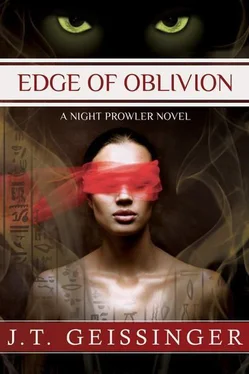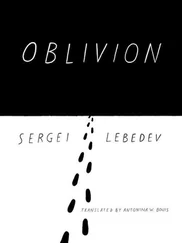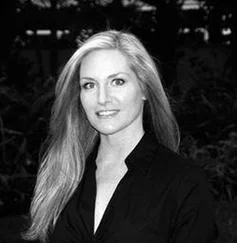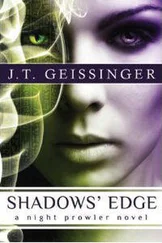They sat now in silence in the shade of a white umbrella, looking at everything but one another.
The aproned cameriere came with their demitasse cups of espresso and departed with a bow.
“So. What is your plan?” Xander took a sip from the tiny porcelain cup. In his big hand it looked like a child’s thing, small and easily breakable.
“I rather hoped you had one.”
Morgan shifted in her chair, settling better against its cushioned back, and lifted her own cup to her lips. She swallowed and tasted heaven: a tiny dose of coffee so fine and strong and sweet it was nearly dessert, topped with a creamy fluff of foam. “God, that’s good,” she said. She finished it in one long draught and sighed in pleasure.
Beside her, Xander smiled. “You don’t have espresso in England?”
“Tea,” she said. “Very fine tea, but nothing at all like this. This is—” She struggled for a moment until he supplied the perfect word.
“Decadent.”
He turned his head to look at her, and the sunlight behind his head caught in his dark hair and haloed it with blue flame. It struck her again how beautiful he was, how savagely graceful, at once mythic and menacing. There was something oddly doomed about him, too, an air of weary sorrow like the memory of too much sin.
Like a fallen angel , she thought, and had to glance away.
“It’s better than what we have in Brazil also.”
She glanced back at him, watching as he drained his cup and set it down, every movement elegant and spare. He looked up at her, rested his elbow on the arm of his chair, then rubbed one finger across his full lips in a slow and thoughtful gesture that also managed to look profoundly erotic.
“Our espresso is grown at lower altitudes, in nonvolcanic soils. Italian blends are more refined.”
“Why does the altitude make a difference?”
“Like wine grapes, only coffee beans grown at high altitudes in rocky, inhospitable soil produce the best fruit.”
She lifted an eyebrow.
“It’s the struggle that refines them,” he explained, “the challenge. Give them too much water, sunshine, and fertile soil and they grow fat and tasteless, like a Concord grape, appetizing only when saturated with sugar and made into jelly. Or they wither and die of boredom. Like people. The best ones are survivors. Stripped of chaff, refined by struggle and hardship, they’re rendered complex and potent by their very endurance and ability to thrive in spite of deprivation.”
Poetic , she thought. My assassin is poetic.
“So,” Morgan said, gazing at him askance from beneath her lashes, “which are you, then? A fat jelly grape?”
He smiled, wry. “No.” His gaze flicked over her, once, hotly assessing. “And neither, I suspect, are you.”
The food arrived. Plates loaded with prosciutto and honeydew and cornetto , biscotti and boiled eggs with heir-loom tomatoes, toasted bread and more of the wonderful espresso. Morgan dug in, trying to avoid the burning stare Xander aimed in her direction.
“I thought perhaps the most crowded areas first,” she offered around a bite of buttered toast once the waiter had retreated. “The touristy areas. Ancient Rome, the Palatine Hill, places like that.”
“More sightseeing,” he said, with a tone that indicated his disapproval of this plan.
She swallowed her bite of toast and sent him a frosty look. “It’s just a numbers game. Jenna didn’t See their direct location, so I have to start somewhere. We can eliminate the bigger, more obvious tourist traps first, then move to the outer areas if we don’t find anything. But I have a feeling we will.”
“You think they’re hiding in plain sight?”
“Why not?” She shrugged. “We do.”
There followed a long, uncomfortable silence. She ate, trying to ignore him while he sat still as stone in his chair, examining her with a gaze so heavy it was touch . Heat across her cheekbones, fight-
or-flight adrenaline coursing through her veins. But she was not— not —going to look at him.
At last he spoke, and she instantly wished he hadn’t.
“Why did you do it?”
Concentrating on the contents of her plate, she speared a ripe piece of melon on the tines of her fork, folded a paper-thin strip of prosciutto over it, and lifted it to her mouth. It melted on her tongue, savory and sweet.
“I thought I told you. I wasn’t running away. I just wanted to look around a bit before we got started.”
“That wasn’t what I meant. Which you know.”
His voice was quiet, barely audible over two elderly gentlemen at the next table arguing vigorously over a game of chess. In spite of herself she glanced at him, expecting to find derision or contempt. But there was only curiosity, that and something deeper, something indefinable that glittered dark in the golden depths of his eyes. The air between them crackled.
Apprehensive and uncomfortable, she dropped her gaze to her plate. “What difference does it make? What’s done is done.” She savagely speared another cube of melon, then dropped her fork to her plate with a clatter and sat back against her chair, her appetite vanished.
“As a matter of fact, it makes a great deal of difference.”
“To who ?” she replied, unhappy. Her sentence was iron-clad, her fate was sealed. Whys no longer made any difference to anyone.
“In the end, everything matters” was his cryptic response. “The big triumphs and failures are what we most remember, but all the little mindless moments, all the forgotten details of your life matter, too. It all matters, because it all adds up to who you really are.”
Surprised, she glanced up at him. That look of curiosity was still there, intense and unflagging, and she was held in it, suspended like a fossil pinned in liquid amber. All at once her apprehension and unhappiness disappeared and she felt only that odd bud of hope again, the one that had first taken root last night. It burned through her heart like a spear of fire.
“Who I really am,” she repeated, uncertain. Was this a test?
He nodded, the smallest motion of his head.
“I’m nothing. I’m no one. I’m...” she cleared her throat, wretched, “...a traitor.”
“Are you?” he murmured, with an almost imperceptible accent on the first word.
His eyes were hypnotic, sunlight and shadow, searching and searing and washed with ancient sorrow that darkened their pure luminosity but allowed her a glimpse into a well of torment so deep, so unfathomable, it was frightening. For a moment as he watched her, his mask of perfect indifference slipped and she glimpsed beneath it something that she recognized all too well.
Pain. Just like her, this beautiful, unrepentant killer was in pain.
In the space of one moment to the next, something vital changed.
“Haven’t you ever wanted a different sort of life?” She blurted it, unthinking. It came out small and pleading. Raw.
“A different sort of life,” he echoed, hollow.
“That’s all I ever dreamed of, since I was a little girl,” she rushed on. “Something more.
Something...else. Anything else.” She gestured to the people strolling past, the whistling waiters, the arguing chess players, a pair of nuns in black habits walking arm in arm up the steps toward the church. “What they have, but I never will.”
He sat in absolute stillness, watching her with unblinking eyes, his face rigid. “Freedom.”
“Yes,” she said, surprised he had guessed. “Liberty and independence and, especially , the choice over who we can love.” His face turned ashen when she said those words, but she pressed on, ignoring it. “ ‘One should die proudly when it is no longer possible to live proudly.’ Do you know who said that?”
Читать дальше












